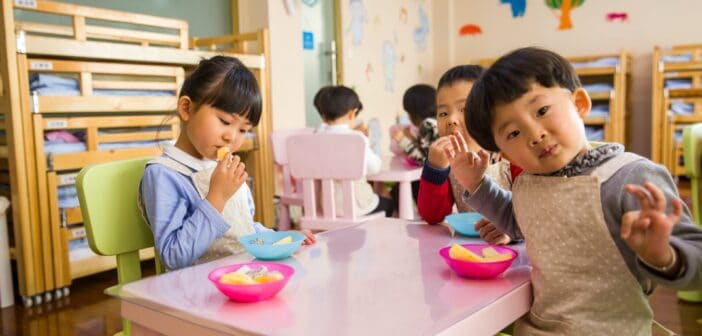While statistics show that children are not at as high a risk for contracting COVID-19 as other age groups, there’s still an urgent need to protect them from getting sick. That means that parents of preschoolers and kindergartners, in particular, have quite the challenge ahead of them. They must take the lead in ensuring that their children stay healthy, as this is an age where kids are still very much dependent on their parents. At the same time, parents must also watch out for their children’s wellbeing, given the lasting social and emotional toll the pandemic is likely taking on them.
What can a parent do to safeguard their preschooler’s health while the latter are at home or at school in a Singapore early learning village? Here are six helpful tips that will hopefully ease the burden on parents like you.
Explain What’s Happening to Them
One thing you should do is help your child understand what’s happening around them. In simple terms, you can explain why there have been sudden disruptions to their routine, how people get sick, and why everyone is wearing a mask.
Processing these issues with you will make it easier for your child to adjust to the circumstances. It will also motivate them to follow basic health and safety practices, like handwashing, on their own. If you need additional resources for teaching your preschool-age child about the pandemic, you can refer to materials like the Early Childhood Development Agency’s (ECDA)’s COVID-Safe ABCs activity kit.
Watch Out for COVID-19 Symptoms
Most children only experience mild cases of COVID-19, but it’s still best to watch out for symptoms. Catching COVID-19 symptoms early means that you can get treatment for your child as soon as possible. You’ll also be able to prevent others from catching the disease.
The most common symptoms that manifest in young children are fever, cough, and sore throat. However, you should also watch out for other telltale symptoms, such as gastrointestinal trouble, poor appetite, and sudden onset of fatigue. Moreover, you should instruct your child to be honest with you and the other adults in the house. Tell them to let you know the minute they’re feeling unwell.
Remind Them to Wash Their Hands Often
Among the easiest health practices that you can teach your preschooler right now is to wash their hands often, and as thoroughly as they can. Teach your child about how washing their hands will get rid of harmful germs, and thus, keep them from getting sick with COVID-19 and other illnesses.
There are several ways that you can make handwashing a more fun and memorable activity for your preschooler. You can make sure that they’re washing their hands for at least 20 seconds by singing a short song together at the same time. You can also change up the scent and texture of the soap, or give them a sticker as a reward when they wash their hands particularly well.
Introduce Them to the Idea of Social Distancing
Another thing you can teach your preschooler is to practice safe social distancing. This means staying at least six feet apart from people who are not from your immediate household. Tell them that the distance makes it harder for people to pass on germs to each other and therefore keeps everyone safer and healthier.
Bear in mind that social distancing may be a little harder for your child to grasp, as they can easily get excitable and want to come close to their family or friends. In these instances, issue a gentle reminder for them to be extra careful.
Plan Your Child’s Healthcare Visits
It’s important for you to continue meeting your child’s healthcare needs, especially amidst a pandemic. But while the virus is still in transmission, it’s a good idea to plan your face-to-face visits to the doctor well ahead of time. You should also look into alternatives that will allow you and your child to stay isolated within the comforts of home, like telemedicine.
Some appointments—like those that involve getting vaccines for your child—will require you to step out of the house. However, other appointments, like a quick pediatric consultation, can be done online. Decrease your child’s risk of exposure to the virus by only going to the hospital or clinic when you need to.
Keep Your Child Physically and Mentally Active
Lastly, don’t forget to involve your child’s general physical, mental, and emotional wellbeing in their daily health regimen. An inquisitive mind and an active body will definitely help them stay in tip-top condition, as well as uplift their spirits.
Make time in your day to do fun exercises with your child, like dancing or playing ball in your backyard. Also engage them with creative activities, like art or music. Most of all, find ways to keep them in touch with their friends or family members, whom they might miss quite a lot. Schedule video calls with the child’s grandparents and cousins, or with your family friends and their children. Let your child see faces other than those in your household, and get them to look forward to the next time everyone can see each other again.
Taking care of a preschooler amidst a global pandemic is no easy task. Nevertheless, you should continue doing your best in looking after their physical, emotional, and mental wellbeing. You don’t even have to do it alone. Despite the odds, there will still be people around you who will be willing to lend a helping hand. Look for the support that you deserve as a parent, and let it hearten you as you seek the best possible life for your preschooler.




